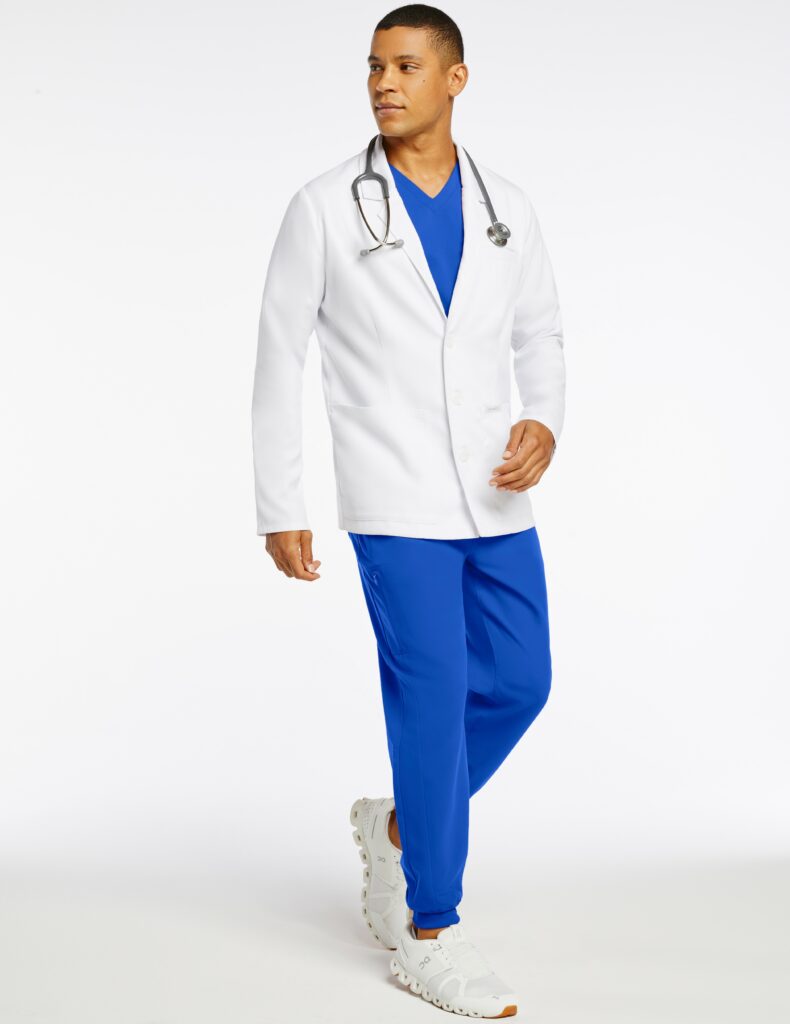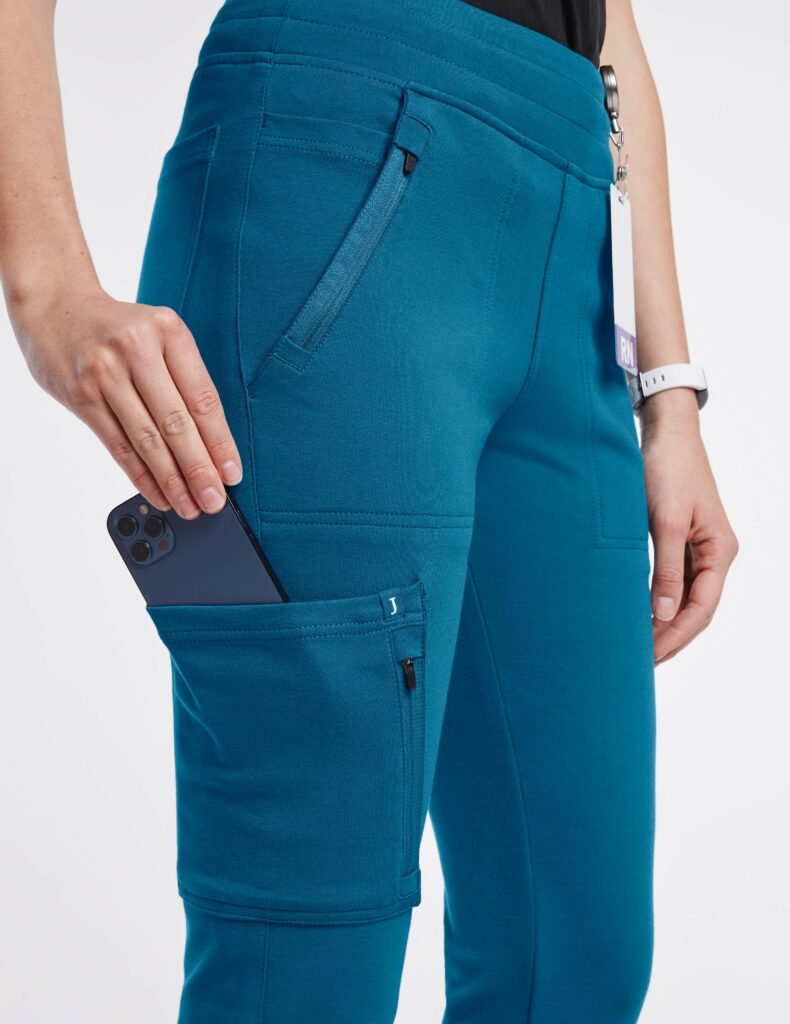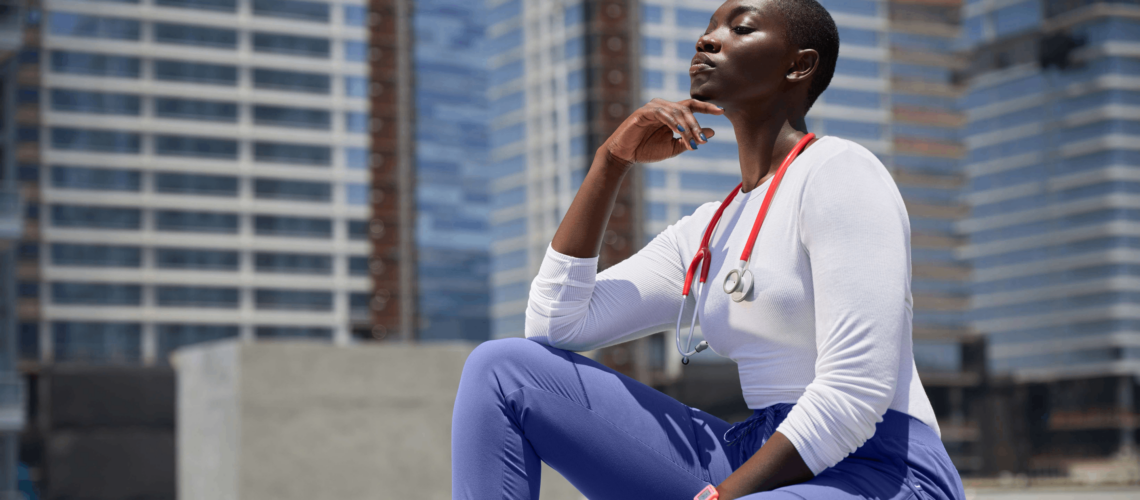Before we mentally prepare you on how to ace your medical school interview, first things first: Know that we believe in you! We know you’re going to be an excellent physician because of your extensive clinical knowledge and immense love for your field, and we bet you’ll outshine others because of your personality, empathy and unique view of the world.
Medical school interviews are, in short, designed to assess whether any candidate is a good fit for the program they’re applying to. If this sounds like a high-pressure situation, that’s because it is. Let’s be honest. Interviews can be stressful! You’re short on time, likely nervous and want to make a great first impression. You also want to show the interviewers who you really are and what will make you a good doctor.
That’s why we’re here to help you fine-tune your interview skills by reviewing some common medical school interview questions you’ll likely encounter. A pro tip: No two interviews are the same, but the questions are likely to be similar across the board. If you prepare comprehensive answers beforehand, you’ll be ready to respond to whatever questions come your way.
Ready to start your interview prep? We’re certainly ready to start helping you.
One interview, different focuses
Remember, every medical school interview you attend will be different, with different focuses based on the school, the admissions committee and maybe even the day. But here are some common topics, along with some sample questions, you can expect to encounter—from medical school interview healthcare questions to ones where the focus is entirely on you.
Prepare for medical school interview questions and answers on:
- Your education: For example, what was your undergrad subject and why?
- Your personality and character (these can be some of the hardest medical school interview questions!): How would you describe your strengths, weaknesses, stress-relieving techniques, hobbies, goals and ambitions?
- The field of medicine: This encompasses your interest in medicine, healthcare trends, technological advancements in the medical profession and more.
- Ethics and diversity: This comprises your take on pressing issues such as euthanasia, suicides, teenage pregnancies and HIV treatment.
- Medical school: This is arguably one of the most important segments in your interview. What makes you stand out among other applicants, and how do you expect the med school to contribute to your career growth?
- Your motivations for becoming a doctor: What was the encouragement behind choosing this profession? What’s your plan B if it doesn’t work out?
What will the questions be like?
Now that you have a hint of the type of questions you’ll come across, let’s go over how to answer them like a pro. Stand in front of the mirror to hone your communication skills, and practice some mock interview questions on yourself. Have multiple mini interviews before the big day. The common medical questions interviewers ask are designed to evaluate candidates in the broadest way possible to see how they would react to different scenarios as a physician.

Your education
- Why did you choose your pre-med major?
- How have you tried to get the most robust education possible?
- Tell us about any jobs or volunteer work you do and your extracurricular activities.
Yourself
- How would you describe yourself as a person?
- How do you handle stressful situations?
- What are your greatest strengths and weaknesses?
- Tell us about your travels.
- Who are your role models?
- What do you like to do in your free time?
- What is an academic challenge you’ve had, and how did you overcome it?
- What are your goals as a physician?
- Where do you see yourself, professionally and personally, in five, 10, 20 years?
Others
- In your opinion, what makes a good physician?
- What is the most compelling health issue facing the world today?
- How do you stay up on the news?
- Is universal healthcare a human right? Why or why not?
Medicine
- Why do you love medicine?
- What are the pros and cons of medicine as a career?
- How would you propose addressing an issue that currently affects our country’s healthcare system?
Ethics
- How would you work with a patient who’s terminally ill or has received a complicated diagnosis?
- How would you make decisions if you had limited resources?
Inclusivity
- Describe your background and how it has prepared you for this role.
- How would you work with patients from different backgrounds than yours?
Motivation
- Why do you want to be a doctor?
- Have you considered any other career paths?
Med school
- Why are you applying to this school in particular?
- What will make you a great medical student?
How to nail your med school interview
If you’re nervous about your medical school interview, don’t worry! It’s completely normal. Here are some medical school interview tips that can help you boost your confidence and keep you calm and controlled (and real):
- Answer confidently, even if it takes you a second or two to think about your response or you need to add something to it later.
- Make eye contact, as this helps the interviewer know you’re engaged.
- Be aware of your body language. Remember to sit up straight and resist nervous gestures like cracking your knuckles or tugging on your hair.
- Practice your responses beforehand. Standing in front of the mirror and rehearsing always helps.
- Sleep for 7-9 hours the day before so that you’re sharp, well-rested and fresh.
- Be yourself and answer authentically.

What should you avoid in a medical school interview?
As you continue your interview preparation, be aware of some of these common mistakes to avoid:
- Sounding rehearsed: Even if you’re super prepared for your interview, try to go with the session’s flow and engage with the interviewer instead of rattling off memorized answers.
- Dressing inappropriately: Dress professionally for your interview, and make sure you feel comfortable in your look before you head out the door.
- Practically reading your resume: The interviewer will likely already have a copy of your resume, so don’t repeat it for them. Treat your interview as an opportunity to show the med school of your dreams who you are as a person by saying what’s not on the resume.
- Not thinking before you speak: It’s better to take a second to think about a good response than say the first thing that pops into your mind.
- Having a bad attitude: Don’t get down on yourself or the interview process; stay upbeat. The interview won’t last forever. You can catch a breather afterward.
- Not asking questions: Interviews aren’t a one-way street. Use this opportunity to get to know the program better by asking a few of your own questions. Doing so benefits you and shows the interviewer you’re involved.
When you get home from your interview, give yourself a pat on the back (and another one from us!), and change into your most comfortable loungewear (or our jogger scrubs). We’ll cheer you on during the session and keep you cozy at home. After you finally receive that well-deserved acceptance letter, be sure to take advantage of our student discount, and once you’ve graduated, count on us to keep you stocked with all the scrubs you’ll need as a doctor!

